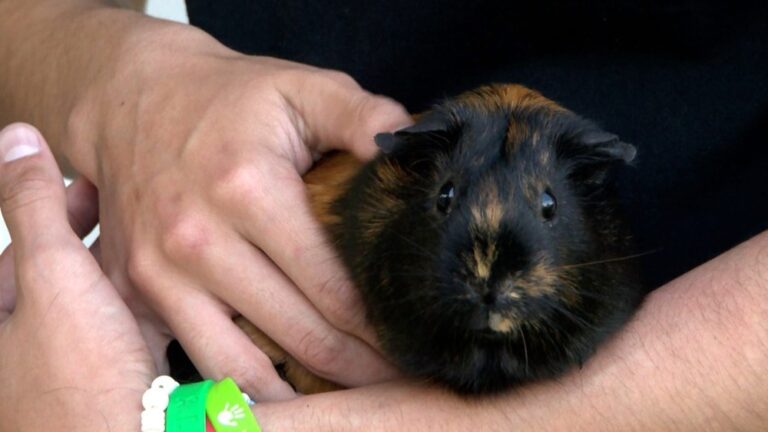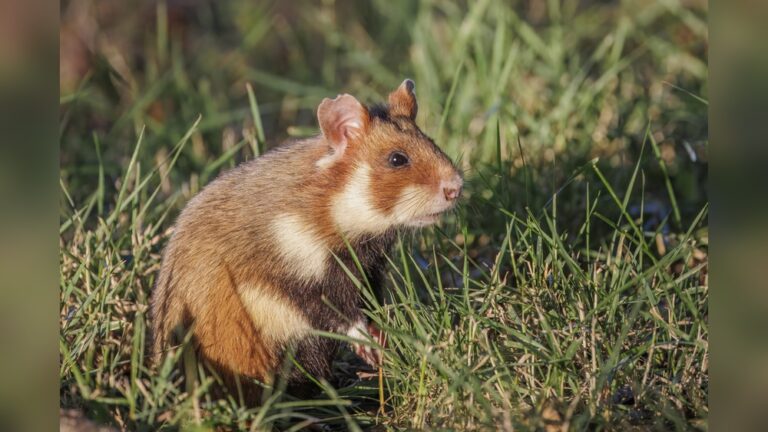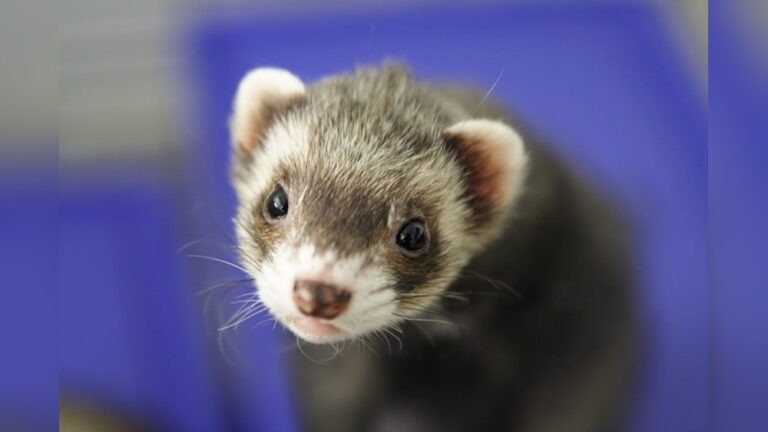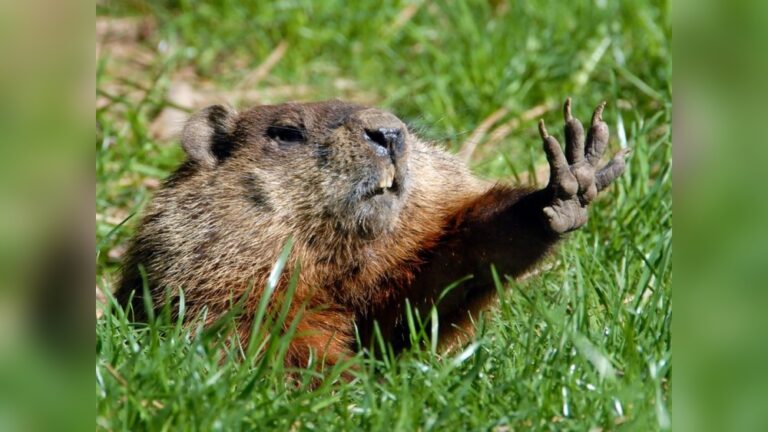Do Chinchillas Pee: Surprising Facts Every Owner Should Know
Have you ever wondered if chinchillas pee? If you have one as a pet or are thinking about getting one, understanding their bathroom habits is important.
Knowing the answer can help you keep your home clean and your chinchilla healthy. You’ll discover the surprising facts about chinchilla pee and what it means for you as an owner. Keep reading—you might be surprised by what you learn!

Credit: www.reddit.com
Chinchilla Bathroom Basics
Chinchillas are clean animals with simple bathroom habits. Understanding how they pee helps keep their living area fresh. Knowing their bathroom routine makes caring for them easier and healthier.
Chinchillas usually use one spot to pee. This behavior helps owners clean cages quickly. It also reduces bad smells and keeps the cage neat.
How Chinchillas Pee
Chinchillas pee by releasing small amounts of urine. They often choose a specific corner or spot in their cage. This helps them stay clean and organized. Owners can place a litter box there for easy cleaning.
Frequency Of Urination
Chinchillas pee several times a day. The amount depends on their water intake and diet. Healthy chinchillas usually pee every few hours. Watching their urination helps spot health problems early.

Credit: www.wikihow.com
Why Chinchillas Pee
Chinchillas pee just like many other animals. This is a natural body function that helps them stay healthy. Understanding why chinchillas pee can help you care for them better. Their peeing habits also tell you about their health and behavior.
Physiological Reasons
Chinchillas pee to remove waste from their bodies. Their kidneys filter out toxins and extra water. This waste leaves the body as urine. Peeing keeps their bodies clean and balanced. It helps control water and salt levels too. Without peeing, chinchillas could get sick.
Behavioral Triggers
Chinchillas also pee for behavior reasons. They use urine to mark their territory. This helps them feel safe in their space. Stress or fear can make them pee more often. Sometimes, they pee to get attention. Understanding these triggers helps you read their mood.
Signs Of Healthy Urination
Recognizing signs of healthy urination in chinchillas helps monitor their well-being. Healthy urination shows that their kidneys and bladder work well. It also means they are hydrated and not stressed. Watching for changes in urine can catch health issues early.
Observe your chinchilla’s urine regularly. Small details matter for their health. The color, consistency, and smell all tell a story. Knowing what is normal helps spot problems fast.
Normal Color And Consistency
Chinchilla urine is usually light yellow to clear. Dark or cloudy urine can mean dehydration or illness. The urine should be mostly liquid without particles. Thick or sticky urine needs attention. Healthy urine flows easily without strain.
Urine Smell
Healthy chinchilla urine has a mild smell. Strong or foul odors may signal infection or diet issues. A sudden change in smell is a warning sign. Keep the cage clean to avoid odor buildup. Clean urine helps keep your chinchilla comfortable and healthy.
Common Urination Issues
Chinchillas pee like many other animals, but some urination problems may occur. These issues can affect their health and comfort. Knowing the common problems helps you keep your pet safe and happy.
Watch for changes in how often or how much your chinchilla urinates. Notice any signs of pain or discomfort. Early care can prevent serious health problems.
Urinary Tract Infections
Urinary tract infections happen when bacteria enter the urinary system. Your chinchilla may pee more often or have blood in the urine. It might also lick the genital area more than usual. These infections cause pain and discomfort. A vet visit is needed to get proper treatment and medicine.
Bladder Stones
Bladder stones form from minerals in the urine. They can block urine flow and cause pain. Signs include straining to pee and frequent urination. Sometimes, the urine looks cloudy or bloody. Bladder stones need veterinary care. Surgery or special diets may be required to remove or dissolve stones.
Dehydration Effects
Dehydration changes the amount and color of urine. Dark, strong-smelling urine may mean your chinchilla lacks water. Dehydration can cause kidney problems and urinary issues. Always provide fresh water and monitor your pet’s drinking habits. Quick action helps prevent serious health risks.
Litter Training Tips
Litter training your chinchilla helps keep their cage clean. It also makes cleaning easier for you. Chinchillas can learn where to pee with patience and the right tools.
Start with a good setup. Observe your chinchilla’s habits. Use this knowledge to guide them to the litter box. Consistency is key in training success.
Choosing The Right Litter Box
Pick a litter box with low sides for easy access. Make sure it is big enough for your chinchilla to turn around. Avoid plastic boxes that trap odors. Use ceramic or metal boxes instead. These are easier to clean and last longer.
Place the box in a quiet corner of the cage. Chinchillas like privacy when they pee. Keep the box stable so it does not tip over.
Encouraging Proper Pee Spots
Notice where your chinchilla pees most often. Place the litter box there at first. Add some used litter to the box. The smell encourages your chinchilla to use it again. Praise them softly when they use the box.
Clean the box regularly, but keep some scent inside. Change litter completely only when it smells bad. Avoid moving the box too often. This can confuse your pet and slow training.
Cleaning And Hygiene
Cleaning and hygiene are very important for chinchillas. Their cages need to be kept clean to keep them healthy. Chinchillas can pee in their cages, so you must clean often. Good cleaning stops bad smells and germs. It also helps chinchillas feel comfortable and safe.
Use safe cleaning products to protect your pet. Avoid strong chemicals that can hurt their sensitive skin and lungs. Clean the cage well but gently. Keep the area dry to prevent mold and bacteria growth.
Safe Cleaning Products
Choose cleaning products made for small animals. Use mild soaps or vinegar mixed with water. Never use bleach or harsh chemicals. These can harm your chinchilla’s health. Rinse all surfaces well to remove any soap or cleaner. Let everything dry completely before putting your chinchilla back.
Maintaining Cage Cleanliness
Remove soiled bedding daily. Change the bedding fully once a week. Clean food and water containers regularly. Check corners and hiding places for waste. Use a brush or cloth to wipe down cage bars and floors. Keeping the cage clean reduces odors and keeps chinchillas happy.
When To See A Vet
Knowing when to see a vet for your chinchilla is very important. Chinchillas are good at hiding sickness. Early vet visits can stop small problems from becoming big ones. Watch your chinchilla’s behavior and health closely. This helps catch signs of illness early.
Warning Signs
Look for changes in your chinchilla’s urination. If your pet pees more or less, it could signal trouble. Blood in the urine is a clear warning. Also, notice if your chinchilla strains to pee or shows pain. Loss of appetite and lethargy often come with urinary issues. These signs need a vet’s checkup fast.
Emergency Situations
Some problems need immediate vet care. If your chinchilla stops peeing entirely, act quickly. Sudden swelling in the belly or genitals is serious. Strong smell or unusual color in urine also demands urgent help. Delaying treatment can cause severe health risks. Always keep a vet’s contact ready for emergencies.

Credit: www.reddit.com
How Smart Pets Lover Can Help You with Do Chinchillas Pee
Exploring Chinchilla Pee: A Window Into Their Well-being
Understanding if and why your chinchilla pees opens a practical learning path for every pet parent. It’s not just about the question “Do chinchillas pee?”—it’s about recognizing the signs of healthy urination and spotting common urination issues early. This knowledge empowers you to maintain their hygiene and comfort through effective cleaning routines and litter training tips covered earlier.
By observing your chinchilla’s bathroom habits, you gain insight into their health and happiness—an emotional connection that goes beyond basic care. When something feels off, knowing when to see a vet ensures your furry friend gets timely attention.
- Watch for changes in frequency or color of urine
- Keep their litter area clean to prevent infections
- Practice patience and consistency with litter training
At Smart Pets Lover, we believe every wag, purr, and chirp tells a story—and with chinchillas, every pee tells a part of theirs. For personalized advice, don’t hesitate to reach out to your local vet or trusted pet care experts who can guide you with confidence.
Frequently Asked Questions
Do Chinchillas Urinate Like Other Pets?
Yes, chinchillas do urinate like most mammals. They produce small amounts of urine regularly to excrete waste and maintain hydration. Proper cage hygiene is essential to prevent odor and health issues.
How Often Do Chinchillas Pee Daily?
Chinchillas typically urinate multiple times a day. The frequency depends on their water intake, diet, and activity. Regular urination helps keep their bodies healthy and balanced.
Can Chinchillas Control Their Urination?
Chinchillas have some control over their urination but lack full bladder control. They may urinate when stressed or excited. Proper training and cage setup help manage their bathroom habits.
Is Chinchilla Urine Harmful To Humans?
Chinchilla urine is generally not harmful to humans but can contain bacteria. Always clean their habitat regularly and wash hands after handling to avoid infections.
Conclusion
Chinchillas do pee, just like many other pets. Their urine helps keep their bodies healthy. Cleaning their cage often keeps your home fresh and safe. Watching their bathroom habits can show signs of health. Give them a clean, quiet spot for comfort.
Knowing this helps you care for your chinchilla better. Small steps make a big difference in their life. Keep learning and enjoy your time with your pet. Simple care creates happy, healthy chinchillas.







